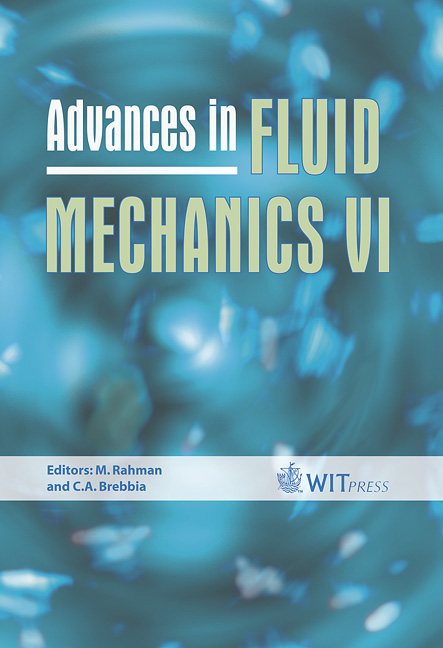Solution Of The Incompressible Navier-Stokes Equations Via Real-valued Evolutionary Algorithms
Price
Free (open access)
Transaction
Volume
52
Pages
8
Published
2006
Size
824 kb
Paper DOI
10.2495/AFM060021
Copyright
WIT Press
Author(s)
R. I. Bourisli &D. A. Kaminski
Abstract
The concept of evolutionary algorithms (EAs) is used to solve the 2-D incompressible Navier-Stokes equations. EAs operate on the principle of natural selection, where candidate solutions compete for survival and are given a chance to survive in accordance with their fitness. In an earlier paper the method was described in detail, with particular emphasis on the various evolutionary operators. In this paper, examples are given on applying the evolutionary solver to practical engineering problems such as viscous flow in channels with multiple contractions and expansions. One of the fundamental qualities of this type of solver is its relative indifference to places of high gradients in the flow field. This, in turn, helps circumvent many of the problems related to the stiffness of the system of equations. We believe the method has great value in tackling fluid flow problems where conventional methods fail to achieve timely convergence. Keywords: evolutionary algorithms, Navier-Stokes, divergence, mutation. 1 Introduction Many problems in computational fluid dynamics suffer from occasional divergence or slow convergence, depending on the discretization, types of boundary conditions and scale of flow phenomena. This is especially evident when continuum discretization schemes are combined with gradient-based iterative solution techniques. A good example of such convergence problem is the solution of the Navier-Stokes equations. Typical methods such as finite element and finite volume
Keywords
evolutionary algorithms, Navier-Stokes, divergence, mutation.





